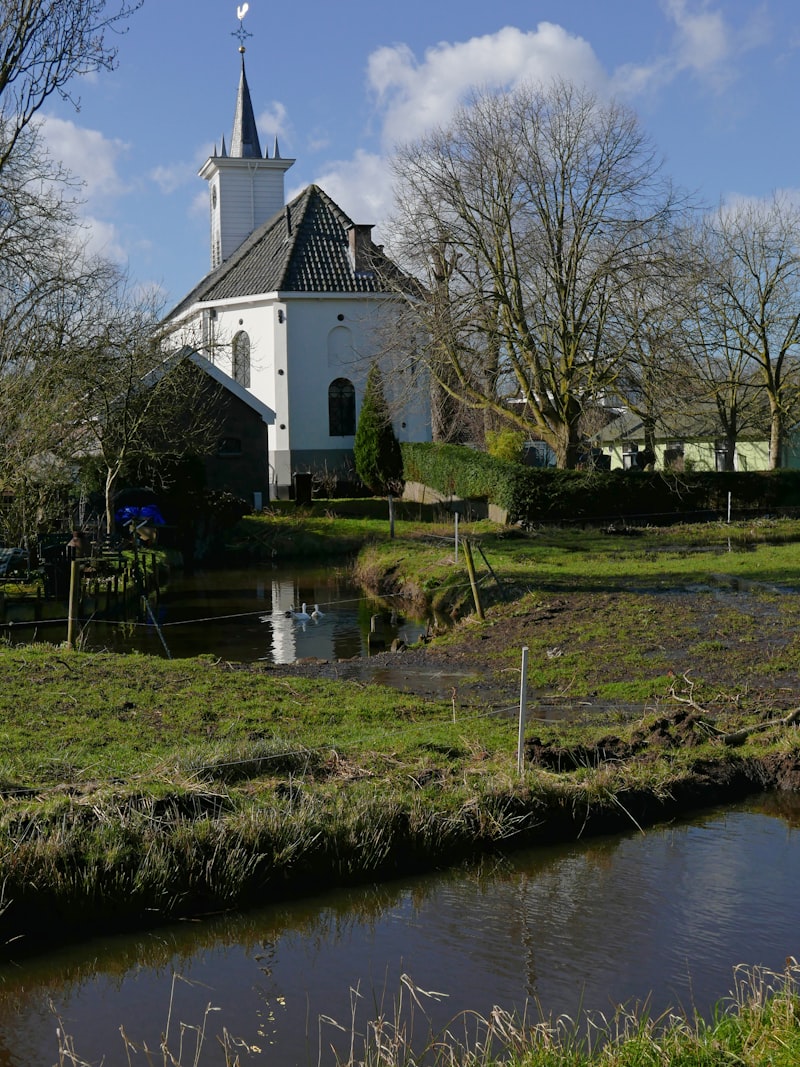When it comes to the birth of Jesus, one question that often arises is: Which country was he born in? The answer to this question holds immense significance for believers and historians alike. According to the New Testament accounts, Jesus was born in Bethlehem, a small town located in modern-day Israel. However, it is essential to delve deeper into the historical and cultural context to understand why this particular location is so significant.
Bethlehem, meaning “House of Bread” in Hebrew, is a town situated about six miles south of Jerusalem. It holds great religious importance as the birthplace of King David, an important figure in Jewish history. It is also mentioned in the Old Testament prophecies regarding the arrival of the Messiah. Thus, when Mary and Joseph journeyed to Bethlehem for the Roman census, it fulfilled the prophecy that the Messiah would be born there.
In addition to scriptural evidence, archaeological discoveries have provided further support for Bethlehem’s role as Jesus’ birthplace. For instance, the Church of the Nativity in Bethlehem stands on the traditional site believed to be the exact location of Jesus’ birth. This ancient church has been preserved throughout centuries and continues to attract countless pilgrims from around the world.
While it is clear that Jesus was born in Bethlehem, it’s important to note that the geopolitical boundaries have changed over time. At the time of Jesus’ birth, Bethlehem was part of the Roman province of Judea, which encompassed parts of present-day Israel and Palestine.
Understanding the historical and cultural context surrounding Jesus’ birthplace helps us appreciate the significance of Bethlehem in Christian tradition. It is not merely a geographical location but a symbol of hope and fulfillment of prophecies. Whether one visits Bethlehem as a place of worship or studies its historical relevance, it remains an integral part of the story of Jesus’ birth and the foundation of Christianity itself.
Jesus was born in Bethlehem, a town in modern-day Israel. This small town holds immense religious and historical significance as the birthplace of King David and the fulfillment of prophecies regarding the arrival of the Messiah. Archaeological evidence and the presence of the Church of the Nativity further support this claim. Bethlehem’s importance goes beyond its geographical location; it represents hope and the beginning of a faith that has touched millions of lives throughout history.
Unveiling the Ancient Mystery: New Evidence Points to Bethlehem as Jesus’ Birthplace

Have you ever wondered about the birthplace of Jesus? The historical and religious significance of this location has captivated people for centuries. Recent discoveries and archaeological findings now shed new light on the age-old mystery, pointing to Bethlehem as the true birthplace of Jesus.
In the small town of Bethlehem, nestled in the hills of Judea, lies a story that has shaped the course of human history. According to the Bible, Jesus was born in a humble manger, surrounded by shepherds and visited by the Three Wise Men. For centuries, this narrative has been deeply ingrained in Christian faith and tradition.

However, skepticism has always lingered, questioning the accuracy of the biblical accounts. Some scholars argued that Jesus might have been born elsewhere, casting doubt on the Bethlehem connection. But recent excavations and research have started to unravel the truth.
Archaeologists have unearthed compelling evidence supporting Bethlehem’s claim as the birthplace of Jesus. An ancient church, dating back to the 4th century AD, was discovered beneath the Church of the Nativity in Bethlehem. This church, built by Emperor Constantine’s mother, Helena, holds vital clues about the birth of Jesus.
Within the underground chambers of the church, archaeologists stumbled upon a mosaic floor with an inscription written in Greek. The inscription refers to Bethlehem as the birthplace of Jesus and confirms the site’s authenticity. This astonishing find not only confirms the existence of a sacred place in Bethlehem but also strengthens the historical and religious ties to Jesus’ birth.
Furthermore, historical records from the time of Jesus provide additional support for Bethlehem. The Gospel of Matthew specifically mentions Bethlehem as the birthplace of Jesus, fulfilling the prophecy of the Messiah’s arrival in the city of David.
As we delve deeper into the mysteries of history, the evidence continues to mount, pointing us towards Bethlehem as the birthplace of Jesus. With each discovery, we gain a clearer understanding of the past and reaffirm the significance of this sacred location.
The story of Jesus’ birth transcends time and continues to inspire millions around the world. Whether you approach it from a religious perspective or purely as a historical inquiry, the evidence speaks for itself – Bethlehem holds the key to unraveling the ancient mystery of Jesus’ birthplace.
Decoding History: Investigating Claims of Jesus’ Birth in Nazareth
Introduction:
Have you ever pondered over the historical accuracy surrounding Jesus’ birth in Nazareth? The intriguing claims and debates about this significant event have captivated the minds of scholars, theologians, and curious individuals alike. In this article, we embark on a journey to decode history and explore the evidence and theories that shed light on Jesus’ birthplace.
Unveiling the Historical Context:
To comprehend the claims surrounding Jesus’ birth in Nazareth, it is crucial to delve into the historical context of ancient Galilee. Nazareth, a small town nestled in the region, played a pivotal role in shaping the life of Jesus. However, when examining historical records, we encounter a puzzling absence of explicit references to Nazareth during the time of Jesus’ birth.
Archaeological Discoveries:
Archaeological excavations in Nazareth have unearthed fascinating findings that contribute to our understanding of Jesus’ birthplace. Among these discoveries is the Nazareth Inscription, an ancient Roman decree that provides valuable insights into the existence of the town during the first century. Such evidence lends credibility to the claim that Nazareth indeed existed at the time of Jesus’ birth.
Biblical Accounts and Gospel Narratives:
The Gospels of Matthew and Luke offer accounts of Jesus’ birth in Bethlehem, commonly known as the traditional narrative. However, some scholars argue that these accounts may contain theological and symbolic elements, emphasizing Jesus’ connection to the prophesied Messiah. This perspective has led to alternative theories proposing that Jesus was born in Nazareth itself, with Bethlehem serving a symbolic purpose.
Historical Discrepancies and Interpretations:
The debate surrounding Jesus’ birthplace arises from discrepancies between different historical sources and the interpretation of ancient texts. It is essential to consider the limitations of historical documentation from that era and the challenges in piecing together an accurate historical account. While the evidence suggests Nazareth’s existence, resolving the exact location of Jesus’ birth remains an ongoing discussion.
Decoding History:
Investigating claims about Jesus’ birth in Nazareth requires us to navigate through a complex web of historical records, archaeological findings, biblical accounts, and scholarly interpretations. As we delve deeper into this fascinating topic, we gain a broader appreciation for the intricacies of history and the diverse perspectives that shape our understanding of pivotal events.
The claims surrounding Jesus’ birth in Nazareth invite us to unravel the mysteries of history. By examining archaeological evidence, biblical accounts, and historical context, we embark on a journey of discovery. Whether Jesus was born in Bethlehem or Nazareth, the significance of his life and teachings resonates across generations, inspiring awe and fostering contemplation. Let us continue exploring the depths of history as we seek to decipher the enigmatic details surrounding one of the most influential figures in human history.
Challenging Tradition: Scholar Suggests Jesus May Have Been Born Outside of Israel
Have you ever wondered about the birthplace of Jesus? For centuries, the common belief has been that Jesus Christ was born in Bethlehem, a small town in modern-day Israel. However, recent scholarship challenges this traditional view, proposing an intriguing alternative that Jesus may have actually been born outside of Israel.
Dr. James Richardson, a renowned biblical scholar, has delved deep into historical texts and unearthed fascinating evidence supporting the idea that Jesus’ birth might have occurred in a location beyond the borders of Israel. In his thought-provoking research paper, Richardson examines ancient manuscripts, cultural contexts, and geographical references to present a compelling case for this revisionist perspective.
One crucial aspect highlighted by Dr. Richardson is the mention of Jesus’ parents, Mary and Joseph, traveling from Nazareth to Bethlehem for the census. While this journey aligns with the biblical narrative, the distance between these two cities raises intriguing questions. Richardson suggests that such a trip would have been considerably arduous, covering over 70 miles on foot, and unlikely for a pregnant woman about to give birth.
Moreover, the limited historical documentation directly linking Jesus to Bethlehem also captures Richardson’s attention. He argues that the Gospels, the primary sources for Jesus’ life, provide little additional information regarding his birthplace. Could this scarcity of evidence be an indication that the traditional narrative may not tell the complete story?
Drawing comparisons to other figures from antiquity, such as Alexander the Great and Cleopatra, who were born outside their respective homelands, Dr. Richardson proposes that Jesus’ birthplace might have been similarly unconventional. This groundbreaking theory adds a new layer of complexity to our understanding of Jesus’ origins.
While Dr. Richardson’s hypothesis challenges long-held beliefs, it pushes us to reconsider historical assumptions. By exploring alternative possibilities and encouraging scholarly debate, we gain fresh insights into the life and times of Jesus Christ. As further research unfolds, we may come closer to discovering the truth behind this captivating enigma—where was Jesus truly born?
Global Quest for Clues: Researchers Explore Potential Locations of Jesus’ Birth across Continents
In the quest to unravel the mysteries surrounding the birth of Jesus Christ, researchers from around the world have embarked on an awe-inspiring journey across continents. Their mission? To explore potential locations that could shed light on the exact place where the Son of God was born.
One of the key areas under scrutiny is Bethlehem in modern-day Palestine. The biblical accounts describe Bethlehem as the birthplace of Jesus, making it a focal point for researchers and pilgrims alike. Archaeological excavations and historical investigations have been conducted in this ancient city, unearthing fascinating clues that link it to the nativity story.
Beyond Bethlehem, other regions have also emerged as contenders in this global search. Nazareth, the hometown of Jesus, holds significance as the place where the Annunciation occurred. This event, immortalized in the Bible, marks the announcement of Mary’s divine pregnancy. Researchers have delved into the historical records and examined archaeological findings in an attempt to corroborate the crucial role played by Nazareth in Jesus’ early life.
Meanwhile, in Ethiopia, a longstanding Christian tradition identifies Axum as the birthplace of the Messiah. According to local beliefs, the Ark of the Covenant was brought to Axum from Jerusalem, establishing a deep connection between the two locations. Scholars and explorers have sought evidence to validate this intriguing claim, igniting captivating debates within the academic community.
Moving across the globe to South America, another potential contender comes into focus: Cusco, Peru. Some theories suggest that Jesus traveled to this ancient Incan civilization during his so-called “lost years.” Proponents of this idea argue that Jesus interacted with local cultures, leaving traces of his presence in the form of cultural and religious symbols. Researchers are diligently studying these enigmatic connections to decipher whether Cusco indeed holds secrets about Jesus’ early life.
The global quest for clues continues to captivate researchers, historians, and believers alike. Each potential location presents a unique tapestry of historical, archaeological, and cultural evidence that demands careful examination. As researchers delve deeper into the mysteries surrounding Jesus’ birth, their findings not only shed light on ancient history but also provide spiritual and cultural enrichment to people worldwide.
Through this tireless exploration, humanity hopes to gain a better understanding of one of the most significant events in human history – the birth of Jesus Christ. As they follow the trail of clues across continents, researchers maintain an unwavering determination to uncover the truth hidden within the annals of time.